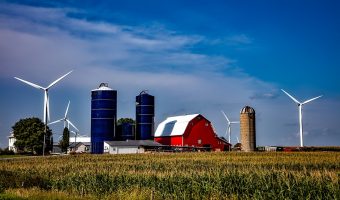
The European Union has made significant progress in its environmental protection policy by updating the Industrial Emissions Directive (IED), which comes into effect on August 4, 2024, and has evolved into the Directive on Industrial Emissions and Livestock Emissions. As its name suggests, the revised directive is a key part of the European Green Deal, aiming to drastically reduce emissions from large industrial plants and intensive livestock farming.
Over the past decade, the original Industrial Emissions Directive has set standards for controlling pollution from industrial sources. However, two years ago, the European Commission proposed revising the directive to keep up with current trends and modernize it.
The updated directive brings several changes. First, it introduces stricter emission limit values and extends its application to additional sources of pollution, including metal mining and large- scale battery production. According to the European Commission’s website, this broader scope is expected to significantly reduce emissions of PM2.5 particles, SO2, NOX, and NMVOC, aiming for a 40 percent reduction by 2050 compared to 2020 levels, according to the European Commission’s.
More:
- EBRD AND EU TO MOBILISE UP TO 100 MILLION EUROS FOR CRITICAL RAW MATERIALS INVESTMENTS
- UNEXPLORED SEABED OF NORWAY: CHALLENGES AND OPPORTUNITIES OF SEA MINING
- SWEDEN TO LIFT URANIUM MINING BAN
In addition, the directive mandates electronic permitting, simplifies administrative processes, and tightens conditions for granting derogations. It also introduces harsher penalties for non- compliance, including fines of at least 3 percent of annual EU turnover for the most severe violations.
Regulations for the largest pig and poultry farms with the highest pollution levels, which account for about 30 percent of such farms in the EU, have also been expanded. These farms will now be subject to a simplified permitting system, reducing administrative burdens while maintaining effective environmental management. Smaller and organic pig farms are exempt from these new obligations.
Moreover, the directive will enhance transparency through the Industrial Emissions Portal, which began operating on May 22, 2024. This portal provides comprehensive data on industrial installations and simplifies operators’ electronic reporting.
Member states have 22 months to transpose the revised directive into national law, while the European Commission will adopt secondary legislation to assist in its implementation. Data reporting on the Industrial Emissions Portal is expected to start in 2028.
Implementing the revised directive is expected to reduce emissions of key air pollutants by 40 percent by 2050 compared to 2020 levels.
Energy Portal

